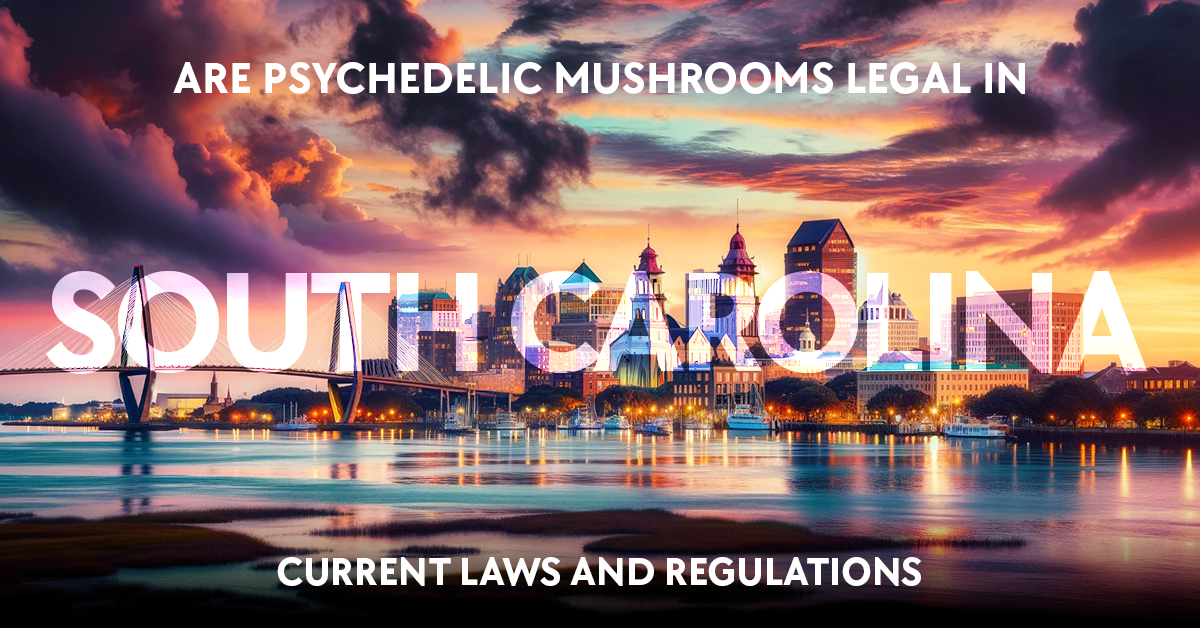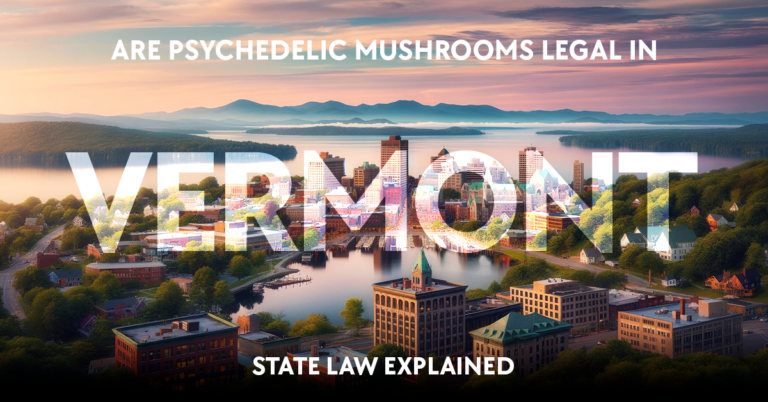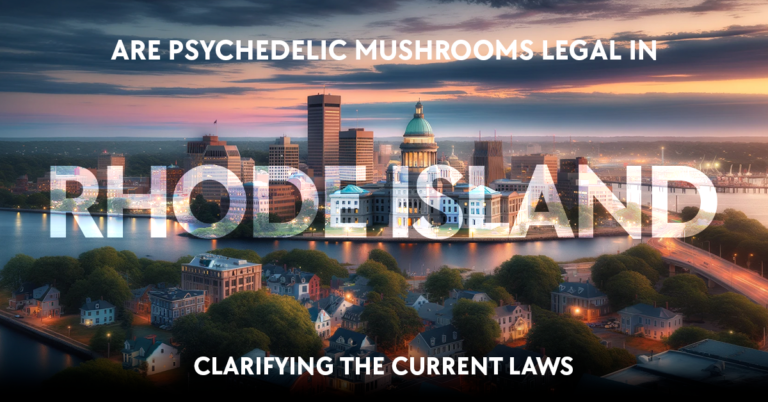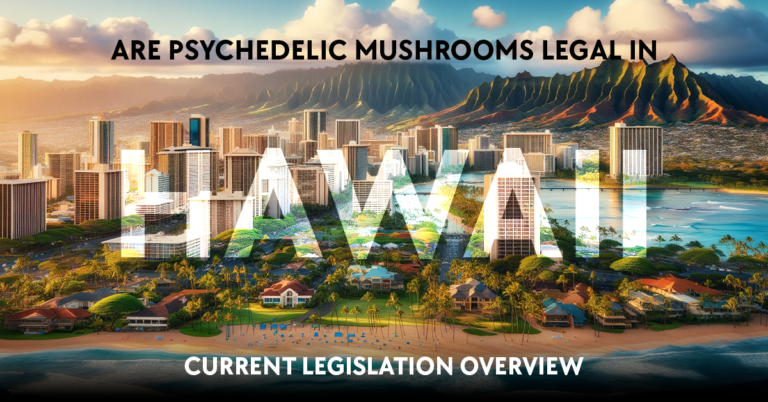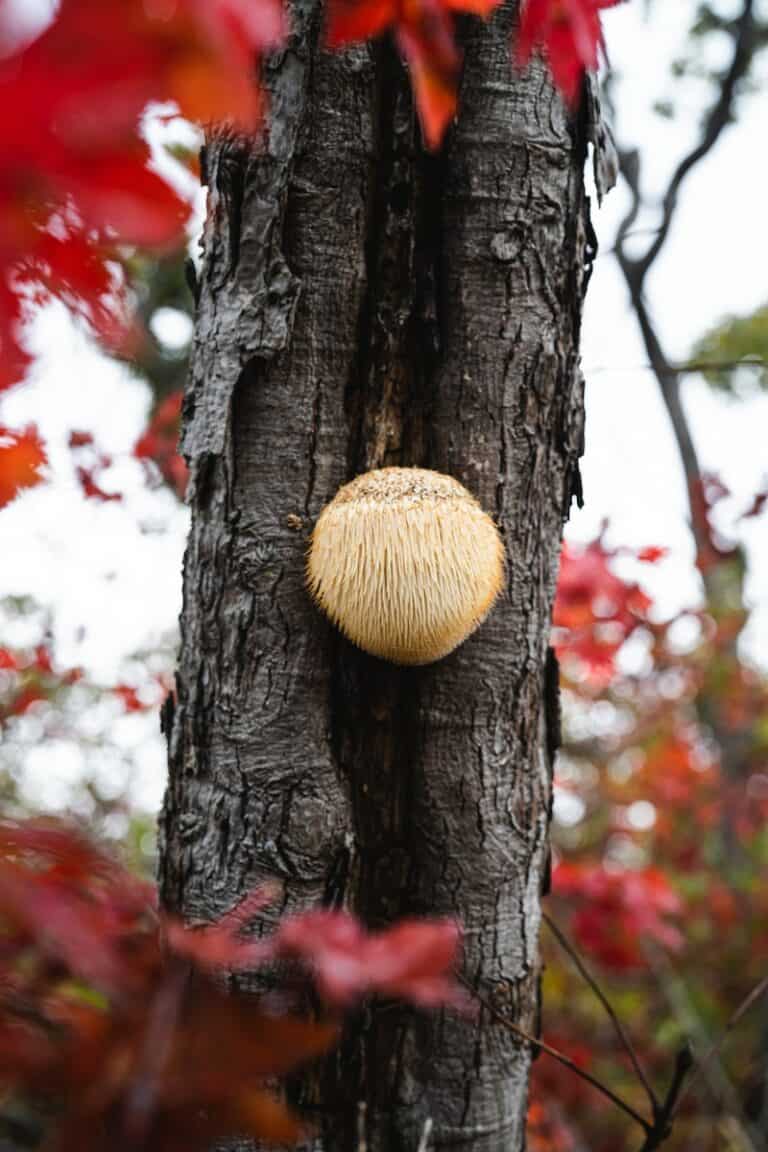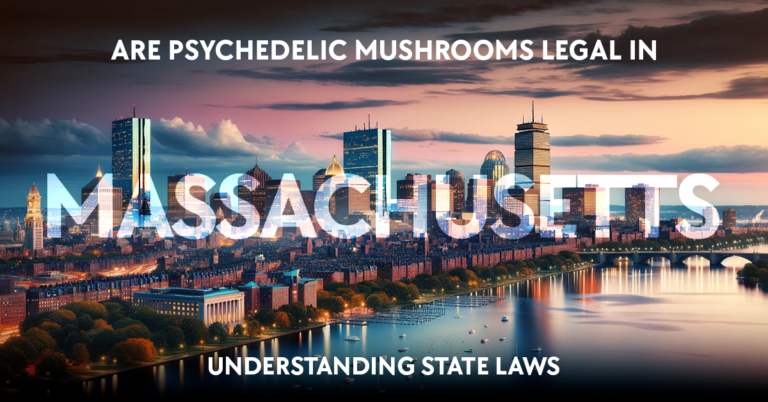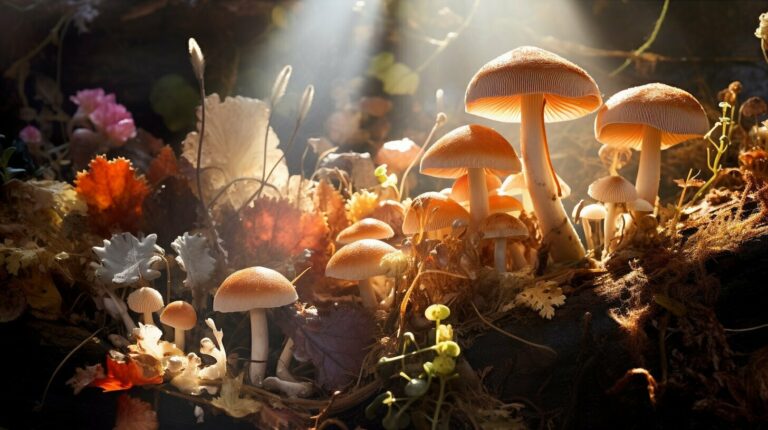Navigating the legal landscape of psychedelic substances can be quite intricate. In South Carolina, as in many other states, the legality of psychedelic mushrooms, which contain the psychoactive compound psilocybin, is clearly defined. Under both state and federal law, psilocybin is classified as a Schedule I controlled substance. This classification means that in South Carolina, the possession, sale, or cultivation of psychedelic mushrooms is illegal and may lead to criminal charges.
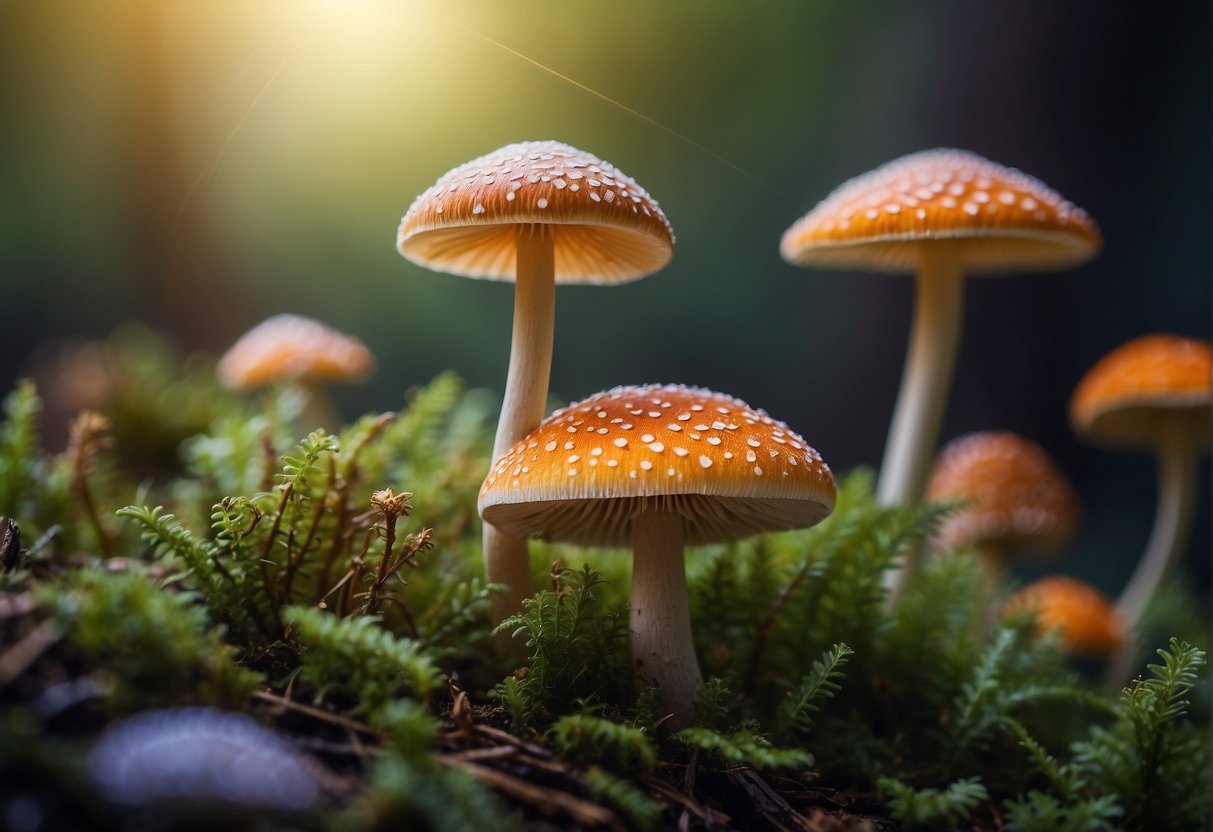
The legal stance is rooted in the historical drug policies that have been in place since the Controlled Substances Act of 1970. Despite emerging research suggesting potential therapeutic benefits of psilocybin for various mental health conditions, there has been no change in the legal status of psychedelic mushrooms in South Carolina. Your understanding of these laws is crucial, especially if you are considering the use of such substances either for personal experience or potential therapeutic applications.
While some jurisdictions have begun to shift their approach to drug enforcement, particularly concerning psychedelics, South Carolina maintains a stringent prohibition. It’s imperative to be aware that regardless of changes in societal attitudes or scientific findings, the existing legal framework is what dictates the legality of substances such as psychedelic mushrooms. And in South Carolina, this framework remains unequivocally prohibitive of psilocybin mushrooms.
Legality of Psychedelic Mushrooms in South Carolina
Table of Contents

In South Carolina (SC), psychedelic mushrooms, also known as psilocybin mushrooms, are considered illegal substances. Psychedelic mushrooms contain psilocybin, which is listed as a Schedule I substance under the United States Controlled Substances Act. SC aligns with federal regulations, depicting a stance that such substances have a high potential for abuse and no currently accepted medical use.
Possession of psilocybin mushrooms is against the law. If you are caught with these mushrooms, you could face penalties that include fines and imprisonment. The severity of the punishment typically correlates with the quantity of the substance in your possession and whether it’s a first or subsequent offense.
The legal framework in SC treats Schedule I substances seriously, and this includes psilocybin mushrooms. Engaging in the use, possession, or distribution of these mushrooms could lead to significant legal consequences. Here’s a concise outline of the legalities:
- Psilocybin mushrooms: Illegal (Schedule I Substance)
- Possession Penalties: Fines and potential jail time
- SC Law Stance: In alignment with federal law; no tolerance for possession or use
Remember, while other states may have different approaches to the legalization and decriminalization of psychedelic substances, these changes do not affect the laws within South Carolina. It remains your responsibility to be aware of and comply with the laws specific to SC regarding controlled substances, including psilocybin mushrooms.
Federal Regulation and Scheduling
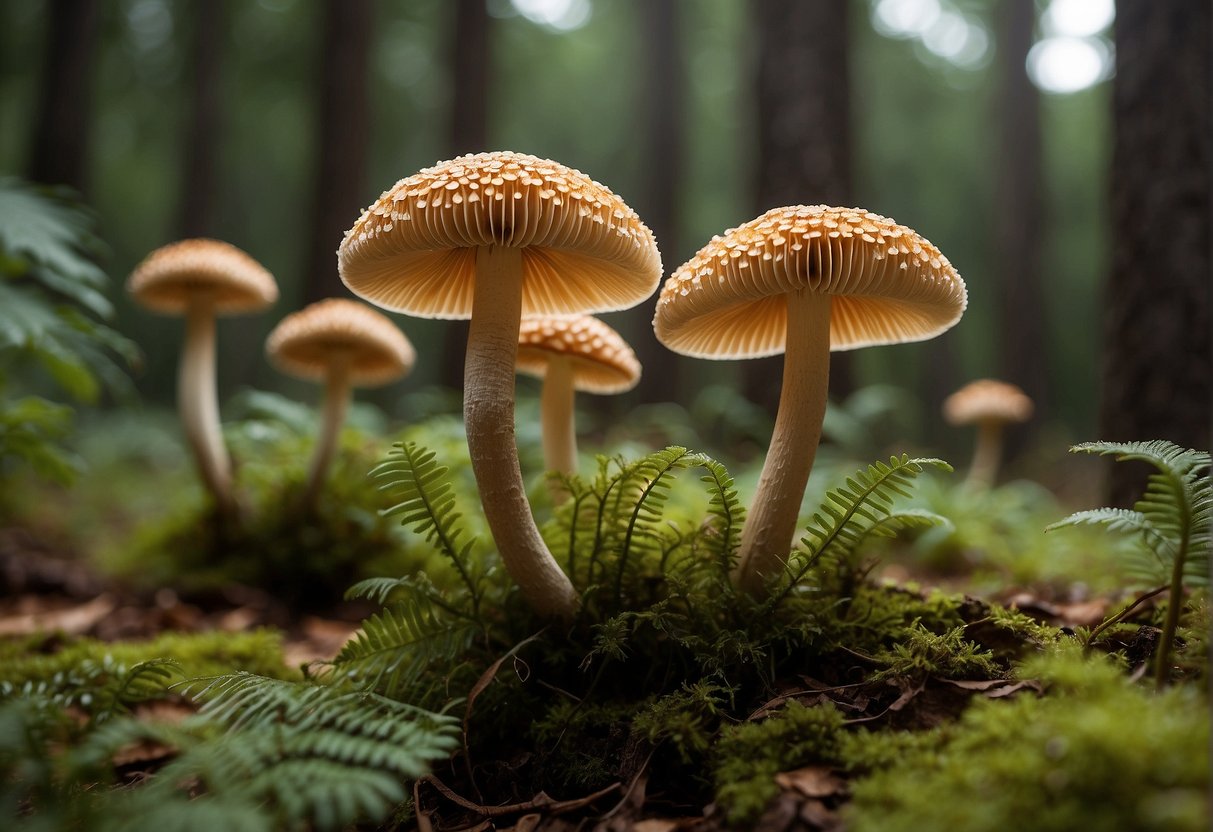
Under United States federal law, psychedelic substances, including psilocybin mushrooms (often referred to as magic mushrooms), are classified as Schedule I drugs. This classification indicates that these substances are considered to have a high potential for abuse, no currently accepted medical use in treatment in the U.S., and a lack of accepted safety for use under medical supervision.
| Schedule | Criteria |
|---|---|
| I | High potential for abuse, no accepted medical use, lack of safety |
Your understanding of the Controlled Substances Act is crucial, as it governs the legal framework for these substances on a federal level. Psilocybin, along with other hallucinogens like LSD, DMT, MDMA, and ketamine, are tightly regulated. Despite potential therapeutic benefits that are currently under research, their use outside of approved studies remains illegal.
It’s important to note that the legal landscape may evolve with ongoing scientific studies. Some compounds like ketamine have approved medical uses in specific contexts, highlighting the complexity within this category of substances. However, as of now, in South Carolina, as in most states, possession, sale, or manufacturing of Schedule I substances, including psychedelic mushrooms, exposes you to serious legal consequences.
Remember, while state-specific laws can differ, they must also adhere to federal guidelines. Any activity involving Schedule I drugs without proper authorization can result in significant penalties, reinforcing the strict stance on psychedelic substances.
Psychedelic Mushrooms and Scientific Research
https://www.youtube.com/watch?v=XhRAG5ZMU9Q&embed=true
In recent years, scientific studies have revealed potential medicinal benefits of psilocybin, a compound found in psychedelic mushrooms, prompting debates on the legal status of these substances. This section explores how the ongoing research impacts medical practices and legal frameworks.
Medical Research and Therapeutic Uses
Psilocybin, an active compound in psychedelic mushrooms, is under investigation for its potential in treating various mental illnesses. Your understanding of its medical application is crucial, considering studies show promise in addressing depression, anxiety, PTSD, and addiction. The therapeutic uses of psilocybin are increasingly recognized, with growing evidence supporting its efficacy and safety when administered in a controlled setting.
Comparative Legality in Other States
As you look at South Carolina, compare it to states like Oregon, California, and Colorado, where psychedelic mushrooms have made legal strides. In cities like Denver, Oakland, and Santa Cruz, efforts to decriminalize psilocybin have succeeded, with Oregon leading in legalization for medicinal use.
Implications of Decriminalization
Decriminalizing psilocybin can have significant implications. It may influence your understanding of its medicinal use, and shift the focus from criminal penalties to public health. States that have decriminalized or are decriminalizing these substances are observing changes in public attitudes and law enforcement priorities.
Cultivation and Possession
Possession and cultivation of psychedelic mushrooms like Psilocybe caerulescens and Psilocybe cubensis currently sit under the Schedule I drug category. In South Carolina, this denotes strict penalties for growing or having these substances. However, for scientific research, acquiring spores and growing mushrooms might be permissible under strict conditions.
Psychedelics for Mental Health Therapies
You should note the evolving landscape of psychedelics for mental health therapies. They are not only about psilocybin; ketamine, originally an anesthetic, is now used for depression. This could set a precedent for other psychedelics’ use in treating mental illnesses.
Anesthetic Use of Psychedelics
The use of psychedelics like ketamine as an anesthetic shows the medical potential beyond mental health, indicating a possible reclassification of psychedelics if further research supports broader medicinal uses.
In this section, the discussion on psychedelic mushrooms and scientific research has been elaborated by focusing on the medical implications, comparisons with other states’ legal stances, and the potential outcomes of decriminalization efforts, cultivation laws, the promising horizon of psychedelics for therapy, and their original use in anesthesia.
State-by-State Legal Overview
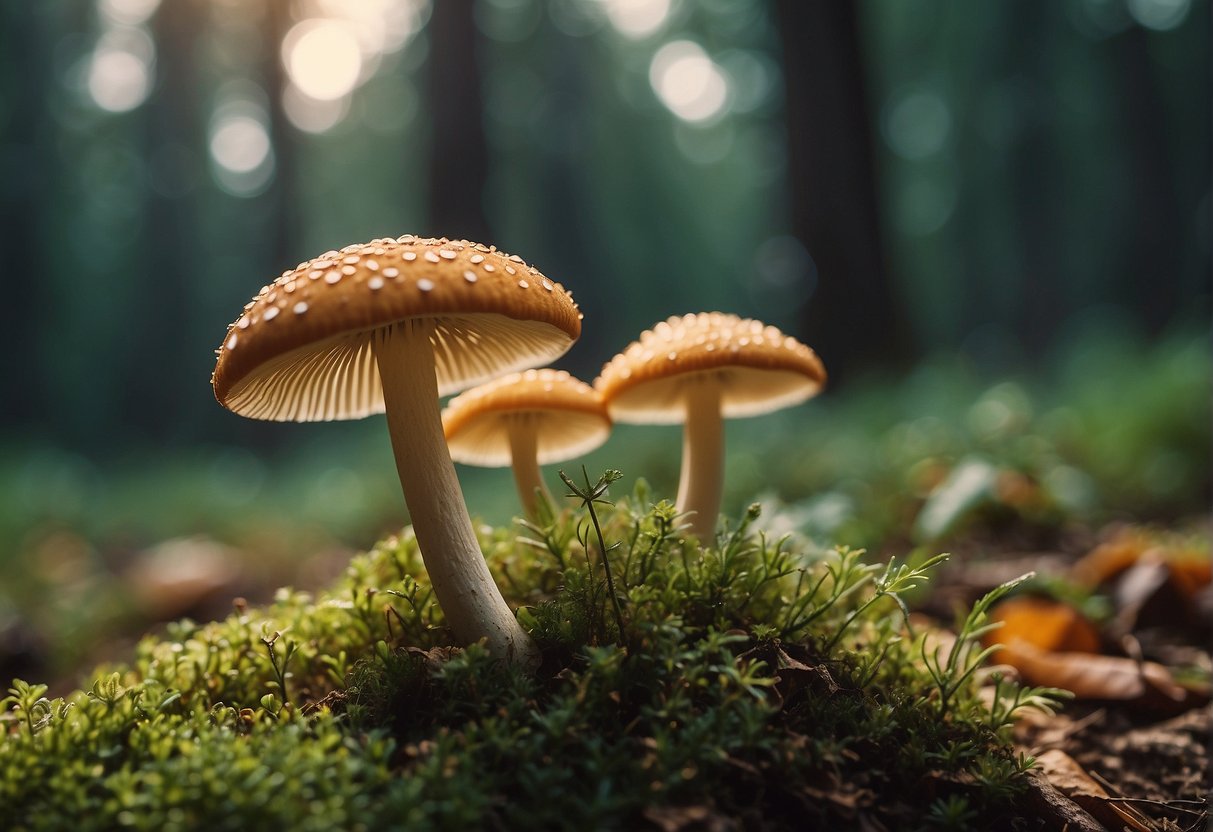
When assessing the legality of psychedelic mushrooms in the United States, it’s crucial to understand that each state has its own specific laws and regulations. Psychedelic mushrooms, often referred to as psilocybin mushrooms, are generally classified as Schedule I controlled substances under federal law, making their sale, possession, or use illegal. However, local policies and enforcement may vary significantly from state to state.
In South Carolina (SC), for example, psychedelic mushrooms are illegal and possession can lead to criminal charges. Similarly, states like Alabama (AL), Arkansas (AR), and North Carolina (NC) also prohibit the use of psilocybin mushrooms.
Conversely, certain states have started to shift their stance on psychedelics, leading to decriminalization or reduced enforcement. For instance, Oregon (OR) has taken steps to decriminalize the possession of small amounts of psychedelic mushrooms and even establish a framework for therapeutic use. California (CA) and Colorado (CO) have made efforts at various municipal levels towards decriminalization, illustrating a trend towards more lenient policies.
-
Illegal States: This group includes most states, such as FL, PA, IL, and NY, where psychedelic mushrooms are treated as controlled substances, and penalties are enforced.
-
Decriminalized States: A handful of states like OR and cities within states such as Denver, CO have decriminalized the substance, making low-level possession a low law enforcement priority.
| State | Legal Status of Psychedelic Mushrooms |
|---|---|
| SC | Illegal |
| OR | Decriminalized; Regulated medicinal use |
| CA | Decriminalized at some local levels |
| CO | Decriminalized in Denver |
Vermont (VT) and other states have yet to change their laws regarding psychedelic mushrooms and they remain illegal.
As of today, no state in the USA has fully legalized psychedelic mushrooms, but the policy landscape is evolving. Remain informed about the laws in your state, and similarly, watch for legal updates as attitudes and regulations surrounding psychedelic substances continue to change.
Legal Risks and Penalties
In South Carolina, psychedelic mushrooms are considered a Schedule I controlled substance. The law is very clear: it is illegal for you to possess, distribute, or manufacture these substances. The penalties linked to these activities are severe and can impact your life significantly.
The legal repercussions for possession of psychedelic mushrooms are as follows:
- First Offense: Possession of mushrooms can be classified as a misdemeanor, which may lead to a fine of up to $5,000, and/or imprisonment for up to 30 days.
- Subsequent Offenses: These offenses are likely to be treated as felonies, potentially resulting in heavier fines and longer prison sentences.
Transporting or selling psychedelic mushrooms, which falls under distribution or manufacturing, carries even stiffer penalties. In some cases, you could be looking at decades in prison and tens of thousands of dollars in fines. These are the general risks:
- Distribution or Manufacturing: Classified as a felony with penalties that can include a lengthy prison sentence and a significant fine.
Remember, your criminal record can follow you for years, affecting job prospects and quality of life. Engaging with psychedelic mushrooms in any capacity within the state is taking a considerable risk.
| Offense | Classification | Fine | Imprisonment |
|---|---|---|---|
| First Possession | Misdemeanor | Up to $5,000 | Up to 30 days |
| Subsequent Possession | Felony | Variable | Longer term |
| Distribution/Manufacturing | Felony | Variable, very high | Multi-year terms |
If you’re caught, don’t expect leniency just because psychedelic mushrooms might be decriminalized in other states. South Carolina law does not reflect the policies of other regions. Stay aware, stay informed, and understand the gravity of these legal risks.
Policy and Reform Movements
In South Carolina, the issue of psychedelic mushroom legality is evolving, with reform movements gathering pace, public opinion playing a critical role, and potential legislative changes on the horizon.
Lobbying Efforts for Psychedelic Reform
Lobbying groups in South Carolina are actively working toward the reform of laws regarding the medicinal and potentially, recreational use of psychedelics, such as psilocybin mushrooms. Your awareness of the current legal landscape is crucial; these mushrooms remain illegal under both state and federal law. However, advocates have underscored the potential therapeutic benefits of psilocybin, and are seeking to decriminalize its use. These movements are often based on research which you can explore in the context of American Drug Reform.
Public Opinion on Psychedelic Legalization
Public opinion in South Carolina is a key driver in the push for psychedelic reform. As it stands, these substances are illegal, and any possession or use is against the law. But you should know that perspectives are shifting as more people become educated on the topic. Recent discussions and surveys show a trend towards a more favorable view of psychedelics for medicinal use, reflecting a significant social perspective change.
Potential Future Changes in Legislation
Looking forward, you may see changes in legislation regarding psychedelics in South Carolina. While currently illegal, the changing tides of public opinion may influence future changes in legalization or decriminalization. Advocates for legal reform are hoping to see a shift that mirrors movements in other states, which could lead to altered policies and laws concerning psychedelic substances. The results of ongoing studies, such as those on the clinical testing of psychedelic drugs, could also play a pivotal role in these potential legal changes.
References
When researching the legal status of psychedelic mushrooms in South Carolina, you’ll encounter various sources documenting legal implications and historical contexts. Please note, the legality of substances can change, so it’s important to verify with the most recent legislation.
-
Legal standings can often be murky due to differing state and federal laws. As such, your first point of reference should be the local law enforcement or legal counsel for the most accurate and current legal advice.
-
For historical and general background on psychedelic mushrooms, you may refer to the article “Field Guide to Psilocybin Mushrooms” which provides some context on the use and distribution of these substances across various states, including South Carolina.
-
Insight into national legal trends and scientific discourse surrounding psilocybin mushrooms can be found within academic publications such as “Hallucinogen actions on human brain revealed“. It discusses the neurological impact of psilocybin without specifically addressing legal status but can be relevant when understanding the reasons behind legal classifications.
-
For the intersection of legal considerations, minors’ rights, and substance confidentiality, the paper titled “The right of minors to confidentiality and informed consent” may offer some insights. It doesn’t provide direct legal advice but addresses related ethical and legal considerations.
Remember, these references serve as a starting point for understanding the multi-faceted nature of psychedelic mushroom legislation. Stay informed by checking for updates on local laws and industry publications.
Conclusion
In South Carolina, your engagement with psychedelic mushrooms is constrained by strict regulations. As of now, possessing, selling, or using psilocybin mushrooms—often termed “magic mushrooms”—is deemed illegal. This stands as a Schedule I controlled substance under both federal and state law, indicating it’s perceived as having a high potential for abuse and no currently accepted medical use in treatment.
You should be aware that consequences for possession can vary, with potential outcomes including fines and imprisonment. This is dependent on the amount of the substance and whether it’s a first or subsequent offense.
For clarity:
- Legality: Psilocybin mushrooms are illegal in South Carolina.
- Substance Classification: Listed as a Schedule I drug.
- Possession Penalties: Fines, imprisonment, or both.
It’s important to stay informed about the law and its potential alterations. While there has been a growing movement to reconsider the legal status of such substances elsewhere, due to potential therapeutic benefits, South Carolina currently maintains a prohibitionist stance.
Remain vigilant and cautious in how you approach this issue, as any non-compliance with state law can lead to serious legal repercussions. Keep abreast of possible legal changes as discussions about the therapeutic uses of psilocybin continue to evolve.
Frequently Asked Questions
The information below aims to provide clarity on the common inquiries surrounding the legalities of psilocybin mushrooms in South Carolina.
What is the legal status of psilocybin mushrooms for personal use in South Carolina?
Psilocybin mushrooms are classified as Schedule I controlled substances in South Carolina, making their possession, sale, and use for personal consumption illegal under state law.
Are there any exemptions for the use of psychedelic mushrooms in South Carolina due to religious practices?
Currently, there are no legal exemptions that allow for the use of psychedelic mushrooms for religious practices in South Carolina.
Has there been any recent legislation in South Carolina addressing psychedelic mushroom decriminalization?
There has been no recent legislation passed in South Carolina that would decriminalize the possession or use of psychedelic mushrooms.
What are the potential legal consequences of possessing psychedelic mushrooms in South Carolina?
Possession of psychedelic mushrooms in South Carolina can result in criminal charges, including fines and imprisonment, reflecting the strict enforcement of controlled substance laws.
Is the cultivation of psilocybin mushrooms for personal use permitted under South Carolina law?
Cultivating psilocybin mushrooms, even for personal use, is illegal in South Carolina and can lead to significant legal repercussions.
Are there any ongoing or planned studies or medical trials in South Carolina involving psychedelic mushrooms?
There are no current or publicly announced plans for studies or medical trials involving psychedelic mushrooms taking place in South Carolina.

